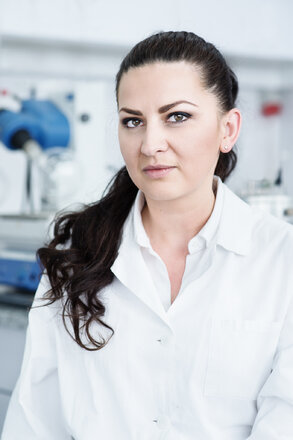Reducing the production time of antidepressants by 90% , and anticancer drugs by up to 50%, is the result of a solution developed by a team of researchers from the Krakow University of Technology.
The technology is based on the use of ultrasound as a low-energy and effective alternative to the classical manufacturing methods currently used in the pharmaceutical industry. The method developed is versatile - it can be used for antidepressants, anti-cancer drugs and painkillers. The best results are precisely achieved with antidepressants, where the reduction in time to product is as high as 90%. In other groups, the reduction in production time is between 30% and 50%. - explains Jolanta Jaśkowska, Ph.D., from the Krakow University of Technology, author of the solution and leader of the research team responsible for the project. Pharmaceutical companies using our technology will be able to significantly reduce production costs, which will also translate into a lower cost of the final drug for the patient - says Dr Jaskowska. The groups of drugs for which this solution is used, i.e. antidepressants and cancer drugs, among others, are among the most expensive on the Polish market, and not all of them are reimbursed. We hope that our solution will make life easier for many seriously ill people. The researchers estimate that the price of drugs using their technology should fall by 20-30 per cent. - This is a rough estimate. In addition, the drugs produced using this method are of a much higher purity, making their purification process much easier and cheaper than conventional production methods. The developed solution is already covered by a patent application.
Greener production
The use of ultrasound also reduces environmental impact. Despite the great importance that the pharmaceutical industry has for society as a whole, we cannot remain indifferent to the side effects of drug production. This is why the method developed by my team stands out above all, lower energy consumption and the possibility of replacing toxic solvents with water, for example - says Dr Jaskowska. The author of the idea was inspired to use ultrasound in pharmacy by washing glassware in the laboratory. The results we achieved when cleaning small glass components with the ultrasonic cleaner led us to look for other solutions for this technology. We also took the first steps in testing the method using a washer. After obtaining very promising results - we transferred the process to advanced equipment, where it was possible to fully control the conditions -. says Dr Jaskowska.
Support of the special purpose vehicle
The team of scientists led by Dr Jaskowska has been taken under its wing by INTECH PK, a special purpose vehicle of the Krakow University of Technology. We see not only a large market potential, but also real social benefits in the technology developed by Dr. Jolanta Jaskowska's team. Our task, as a special purpose vehicle, is to support solutions that can have a significant impact on improving the quality of life of society. Reducing the cost of drug production while reducing the negative impact on the environment fits into this goal - says Krzysztof Oleksy from INTECH PK. The special purpose company is now helping the scientists to find an industry investor. We are already after several discussions with potentially interested companies. The technology is so revolutionary that interest is very large. We are also helped in our discussions by the fact that we have a good understanding of the specifics of working with the pharmaceutical sector - Oleksy says.
The INTECH PK special purpose vehicle, set up by the Krakow University of Technology, belongs to the Agreements of Special Purpose VehiclesThe organisation brings together more than 20 companies from universities and research institutes across the country, which have carried out nearly 2,000 projects for companies and public institutions since their inception. The companies exchange experience in the commercialisation of results, together identify and address development issues for businesses and administrative units, and develop systemic solutions for the science-business area. Through the commercialisation of knowledge and the development of cooperation between science and business, the SPVs support the implementation of projects in areas as diverse as health care, biotechnology, environmental protection, agriculture or construction.
About the Covenant of Special Purpose Companies:
The Agreement of Special Purpose Companies was established at the beginning of 2014 between special purpose companies of scientific entities established under the Higher Education Act. It is the only organisation in the country that brings together special purpose companies of Polish universities and research institutes. The companies exchange experience in the commercialisation of results, together identify and undertake development topics for businesses and administrative units, and work out systemic solutions for the administration in the science-business area. To date, the companies have completed nearly 2,000 projects for more than 1,300 private companies and public institutions.

